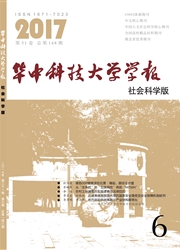

 中文摘要:
中文摘要:
在Becker(1977)所开创的婚姻经济学中,离婚是由两个因素导致的:婚姻错配和收入冲击,不过实证研究却很难将两者的效应分离。本文使用中国地级市2005—2012年的离婚和房价的面板数据,采用向量自回归的残差项测量未预期到的房价变化,证实收入冲击是影响离婚率的一个重要因素;并且,由于未预期到的房价波动与婚姻匹配的质量无关,因此未预期到的房价冲击效应就可以全部归结为收入冲击。这些研究发现说明近年来高速上涨的房价与离婚率攀升是相互关联的,并且在婚姻市场上,"同享福"比"共患难"更不稳定,这也暗示着从更宏大视角来评估房地产市场的必要性。
 英文摘要:
英文摘要:
Marital mismatch and uncertain income shock are two general causes leading to marital dissolution according to Becker( 1977) theory,however,it is difficult to distinguish the later from the former in empirical studies. Using vector autoregressive residual as the measurement of unexpected house-price,this paper takes the panel data of house-price and divorce from 2005 to 2012 to study the relation between houseprice and marital dissolution. We find that,firstly,unexpected house-price fluctuations significantly affects divorce rate. Secondly,the relationship between house prices and divorce rates is asymmetric. House-price decreases have no statistically significant effect on the share of the population that is divorced,while house-price increases increase the divorce rate. Thirdly,the higher house-price fluctuations are,the greater impact on the divorce rate.
 同期刊论文项目
同期刊论文项目
 同项目期刊论文
同项目期刊论文
 期刊信息
期刊信息
